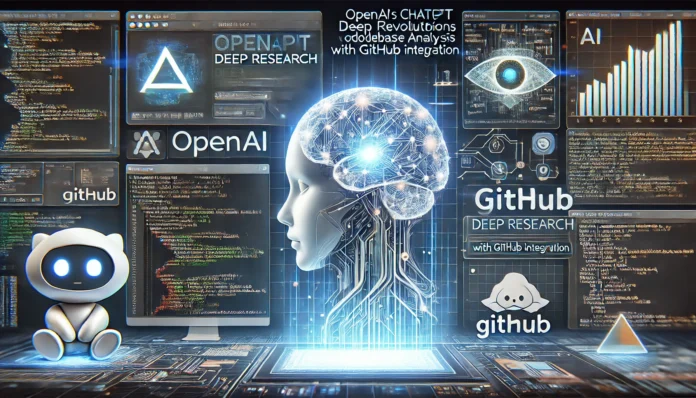In a groundbreaking development for the AI and software development communities, OpenAI announced on May 12, 2025, that its ChatGPT model now includes an advanced «Deep Research» feature capable of understanding and working with entire GitHub codebases. This update, revealed through posts on X and technology news outlets, marks a significant leap in how AI can assist developers, potentially transforming workflows in software engineering and beyond.
The new Deep Research capability allows ChatGPT to analyze complex code repositories, comprehend their structure, and provide actionable insights, such as debugging suggestions, code optimization tips, and even architectural recommendations. Unlike previous AI tools limited to analyzing snippets or individual files, this feature processes entire codebases, making it a game-changer for large-scale projects. For instance, developers can now ask ChatGPT to identify inefficiencies across a sprawling repository or suggest refactoring strategies for legacy systems.
This innovation aligns with the broader trend of AI models becoming multimodal and context-aware. As noted in recent industry analyses, such as the 2025 AI Index by Stanford HAI, AI systems are rapidly advancing in their ability to handle diverse data types, from text to code to multimedia. OpenAI’s move builds on this momentum, positioning ChatGPT as a versatile tool not just for conversational tasks but for technical domains requiring deep contextual understanding.
The implications for businesses and developers are profound. Startups and enterprises alike can leverage this feature to accelerate development cycles, reduce technical debt, and improve code quality. For example, a small AI startup could use ChatGPT to streamline its DevOps pipeline, while a large corporation might integrate it into its software maintenance workflows. According to a McKinsey report, organizations adopting such AI-driven tools could see productivity gains of up to 30% in software development.
However, the update also raises ethical and regulatory questions. With AI accessing entire codebases, concerns about data privacy and intellectual property have surfaced. Posts on X highlight fears that proprietary code could be inadvertently exposed or misused, especially if models are trained on publicly available repositories without clear consent. The EU AI Act, enforced since August 2024, emphasizes transparency and risk management for such applications, and OpenAI will need to navigate these regulations carefully.
Industry experts are buzzing with excitement and caution. “This is a massive step toward agentic AI, where models don’t just respond but actively solve complex problems,” said a software engineer quoted in VentureBeat. Yet, others warn that overreliance on AI could deskill developers, echoing debates about automation’s impact on the workforce. These discussions reflect broader societal reflections on AI’s role, as noted in recent opinion pieces calling for balanced integration of AI tools.
For now, OpenAI’s Deep Research feature is available to ChatGPT Plus subscribers, with plans to expand access. Developers are already sharing early success stories on X, with one user noting that ChatGPT helped them resolve a months-old bug in just minutes. As AI continues to reshape industries, this update underscores the transformative potential of language models in technical domains, while also highlighting the need for robust ethical frameworks.




